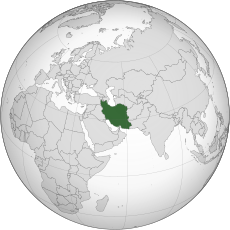United Nations Security Council Resolution 1835
| UN Security Council Resolution 1835 |
|
|---|---|

|
|
| Date | 27 September 2008 |
| Meeting no. | 5,984 |
| Code | S/RES/1835 (Document) |
| Subject | Non-proliferation Iran |
|
Voting summary
|
15 voted for None voted against None abstained |
| Result | Adopted |
| Security Council composition | |
|
Permanent members
|
|
|
Non-permanent members
|
|
UN Security Council Resolution 1835 was adopted unanimously by United Nations Security Council on 27 September 2008. The resolution was in response to the 15 September report of the International Atomic Energy Agency (IAEA) that stated that Iran had not suspended uranium-enrichment-related activities. The resolution reaffirmed four previous Security Council resolutions: 1696 (2006), 1737 (2006), 1747 (2007), and 1803 (2008).
On 15 September 2008, the International Atomic Energy Agency (IAEA) released a report on the execution of Nuclear Non-Proliferation Treaty (NPT) regulations in Iran. The report also investigated Iran’s acquiescence to Security Council Resolutions 1737, 1747, and 1803. The report found conclusively that Iran was continuing along its path of non-compliance. In addition, the report included two important findings about Iran’s non-compliance. The report found that Iran is making significant progress on developing and operating its centrifuges and that it continues to resist efforts to address its suspected nuclear weapons work.
The 5984th meeting of the UN Security Council took place on 27 September 2008. The P5+1 countries; United States, United Kingdom, France, Germany, Russia, and the People's Republic of China, proposed the resolution. The resolution was passed unanimously. The meeting lasted from 4:05 pm to 4:10 pm. The representative of Indonesia voted in favor of the resolution despite making a statement before the vote was taken. The representative, who had abstained from voting for resolution 1803 in 2008, declared Indonesia's support for the resolution because it did not provide for additional sanctions against Iran. He emphasized Indonesia's desire for a negotiated solution, one that provided incentives, not "discentives" to Iran.
...
Wikipedia
